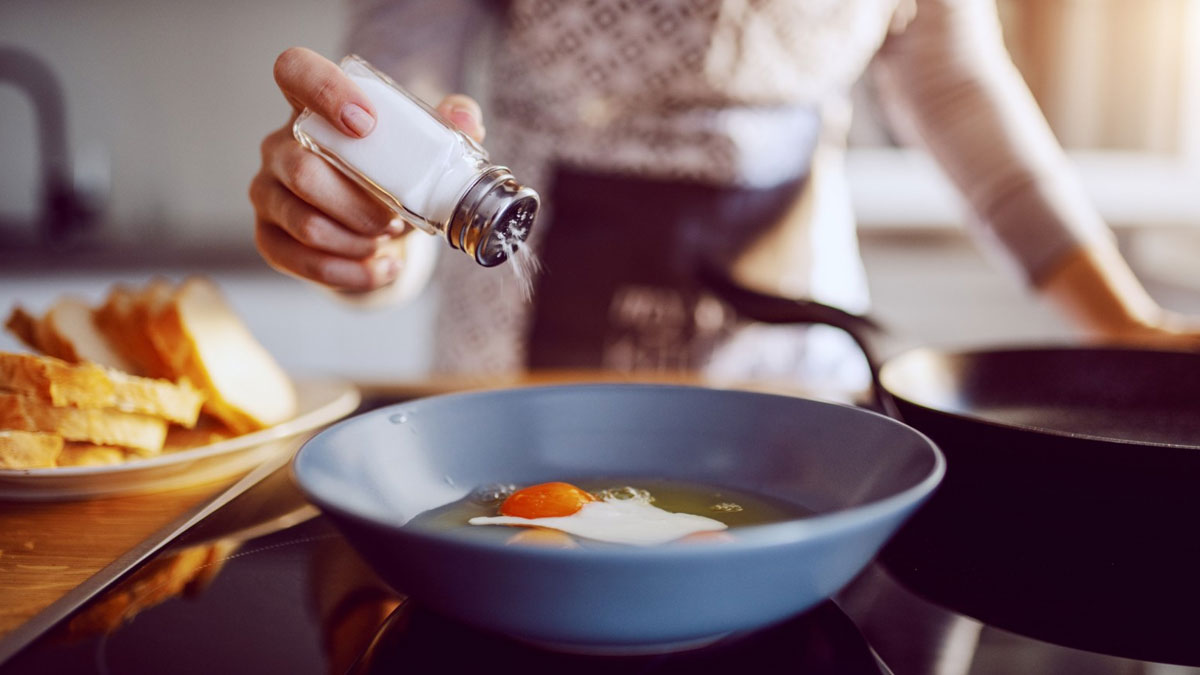
Gastric cancer, also known as stomach cancer, poses a significant health risk globally, being the fifth most common cancer worldwide. In the United States, it accounts for about 1.5% of new cancer cases annually. Identifying risk factors for this severe disease is crucial for early intervention and improving patient outcomes. A recent study highlights a concerning link between the habitual addition of table salt to food and an increased risk of developing gastric cancer.
Table of Content:-
The Study and Its Findings
Published in the journal Gastric Cancer, the study analysed data from the UK Biobank, encompassing over 470,000 participants. Researchers aimed to investigate how frequently adding salt to food at the table correlates with the incidence of gastric cancer. The study excluded participants with pre-existing cancer, kidney disease, or missing data on salt usage, body mass index (BMI), or urinary sodium and potassium levels.
Participants were categorised based on their self-reported frequency of adding salt to food: never/rarely, sometimes, usually, or always. The researchers also measured urinary sodium, creatinine, and potassium levels to estimate 24-hour urinary sodium excretion. Various factors, including age, sex, education level, physical activity, alcohol use, red meat consumption, and fruit and vegetable intake, were accounted for in the analysis.

During the median follow-up period of 10.9 years, 640 cases of gastric cancer were documented. The study found that individuals who always added salt to their food at the table had a 41% higher risk of developing gastric cancer compared to those who never or rarely did so. This significant association highlights the potential danger of excessive salt consumption.
Understanding the Risk Factors
Several risk factors for gastric cancer have been identified, including smoking, age, obesity, and family history. High salt intake has been previously linked to an increased risk of gastric cancer, particularly in Asian populations. However, this study extends the understanding of this risk factor to Western populations, providing new insights into dietary impacts on gastric cancer risk.
Dr Rakesh Patel, Consultant Gastroenterology, Fortis Hospital, Kalyan, emphasised the importance of these findings. He noted that while the association between high salt diets and gastric cancer is well-documented in Asian countries, this study sheds light on similar risks in Western countries. He also pointed out the broader health risks of excessive salt intake, such as hypertension and cardiovascular disease, urging public awareness and preventive measures.
Also Read: Hailey Bieber Shares Update On Food Cravings Amid Pregnancy; All About Pregnancy Food Cravings
Study Limitations and Future Research
Despite its significant findings, the study has several limitations. It cannot establish a direct causal relationship between increased salt consumption and gastric cancer due to its observational nature. The reliance on self-reported data for salt usage may also introduce inaccuracies. Furthermore, the UK Biobank sample may not fully represent the general population, suggesting a need for more diverse studies to confirm these findings.
The estimation method for 24-hour urinary sodium levels used in the study might not accurately reflect true sodium intake. Additionally, the relatively small number of gastric cancer cases limited the ability to analyse the impact of potential modifiers like sex, age, ethnicity, smoking status, or Helicobacter pylori infection. Future research should address these limitations and explore the effects of salt intake on different gastric cancer subtypes.
Reducing Salt Intake: Practical Advice
Given the potential health risks associated with high salt consumption, including gastric cancer, it is crucial to adopt strategies to reduce salt intake.
- Read Labels: Check food labels for sodium content and choose low-sodium options.
- Cook at Home: Prepare meals at home using fresh ingredients to control salt levels.
- Flavour with Herbs and Spices: Use herbs, spices, and other seasonings instead of salt to enhance flavour.
- Limit Processed Foods: Reduce consumption of processed and packaged foods, which often contain high levels of sodium.
- Rinse Canned Foods: If using canned vegetables or beans, rinse them to remove excess sodium.
- Educate Yourself: Learn about the recommended daily sodium intake and monitor your consumption accordingly.
By making these dietary changes, individuals can significantly reduce their overall salt intake, potentially lowering their risk of gastric cancer and other health issues associated with high sodium consumption.
Bottomline
The recent study underscores the significant link between the regular addition of table salt to food and a heightened risk of gastric cancer. As research progresses, it becomes increasingly clear that dietary habits play a crucial role in cancer prevention. Reducing salt intake is a practical step individuals can take to mitigate their risk, contributing to better overall health and potentially lowering the incidence of gastric cancer. Public health initiatives and individual dietary changes are essential to address this preventable risk factor effectively.
Also watch this video
How we keep this article up to date:
We work with experts and keep a close eye on the latest in health and wellness. Whenever there is a new research or helpful information, we update our articles with accurate and useful advice.
Current Version